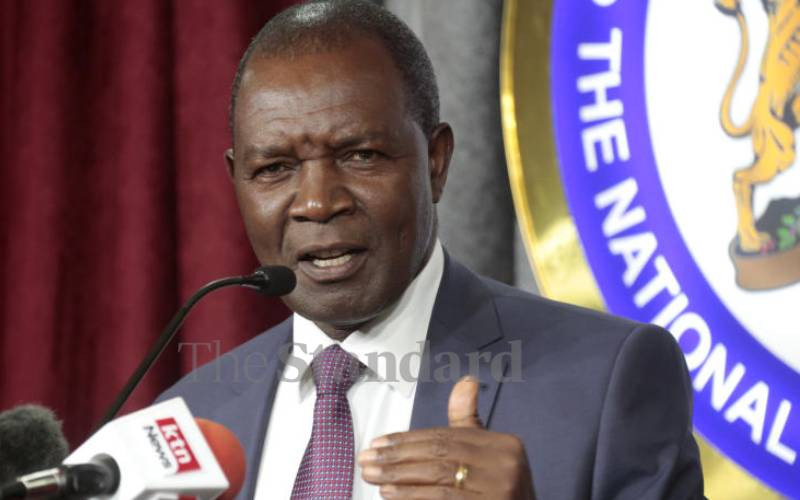
Kenya's debt remains sustainable, but the country's risk of debt distress remains high, the World Bank has warned in a new report set for launch today.
The international lender consequently wants the government to act quickly to tackle fiscal imbalances and restructure public spending to draw more investments and boost growth.
This will not be a walk in the park, however, with the World Bank warning that although Kenya's medium-term economic prospects remain good, the broad political commitment to fiscal consolidation and reducing the country's risk profile external debt could be jeopardised by continued turbulence in the global economy.
"Sustained and intense fiscal pressures could delay efforts to rebuild fiscal buffers and divert attention from necessary structural reforms and MSME (Micro Small and Medium Enterprises) investments, while rising food prices and related shortages raise the potential for unrest," says the World Bank in the new report on Kenya.
The success of Kenya's fiscal consolidation efforts also depends on increasing the efficiency and impact of spending, and reducing opportunities, for corruption, adds the global lender.
Priorities include improving poor information flow which limits budget transparency and creates myriad opportunities for graft; uneven and delayed resource flows which constrain service delivery and frontline quality improvements; and delayed payments to vendors, which trigger liquidity shortages across the private sector.
"Maintaining Kenya's multi-year fiscal consolidation effort with step changes in debt transparency, fiscal sustainability (domestic resource mobilisation) and public expenditure efficiency will be essential," says the global lender.
The assessment comes at a time when Treasury is trying to balance its debt portfolio, which is fast approaching the allowed Sh10 trillion limit after expensive commercial debts piled up, taking up more than 60 per cent of tax revenues.
National Treasury Cabinet Secretary Prof Njuguna Ndung'u has maintained the State will opt for direct concessional budget funding from multilateral lenders instead of expensive domestic and foreign commercial debt.
Prof Ndung'u said recently that reliance on institutions like the International Monetary Fund (IMF) and the World Bank in the medium term to bridge the budget deficit would help reduce debt vulnerabilities.
The World Bank says it will pump billions of shillings into Kenya to help recreate fiscal space that deteriorated due to rising debt service, Covid-19, climate shocks and global headwinds, and rebuild its fiscal buffers over the medium term.
"The programme will include development policy financing to help accelerate fiscal and investment climate reforms and lower Kenya's borrowing costs," World Bank said.
 The Standard Group Plc is a multi-media organization with investments in media platforms spanning newspaper print
operations, television, radio broadcasting, digital and online services. The Standard Group is recognized as a
leading multi-media house in Kenya with a key influence in matters of national and international interest.
The Standard Group Plc is a multi-media organization with investments in media platforms spanning newspaper print
operations, television, radio broadcasting, digital and online services. The Standard Group is recognized as a
leading multi-media house in Kenya with a key influence in matters of national and international interest.










